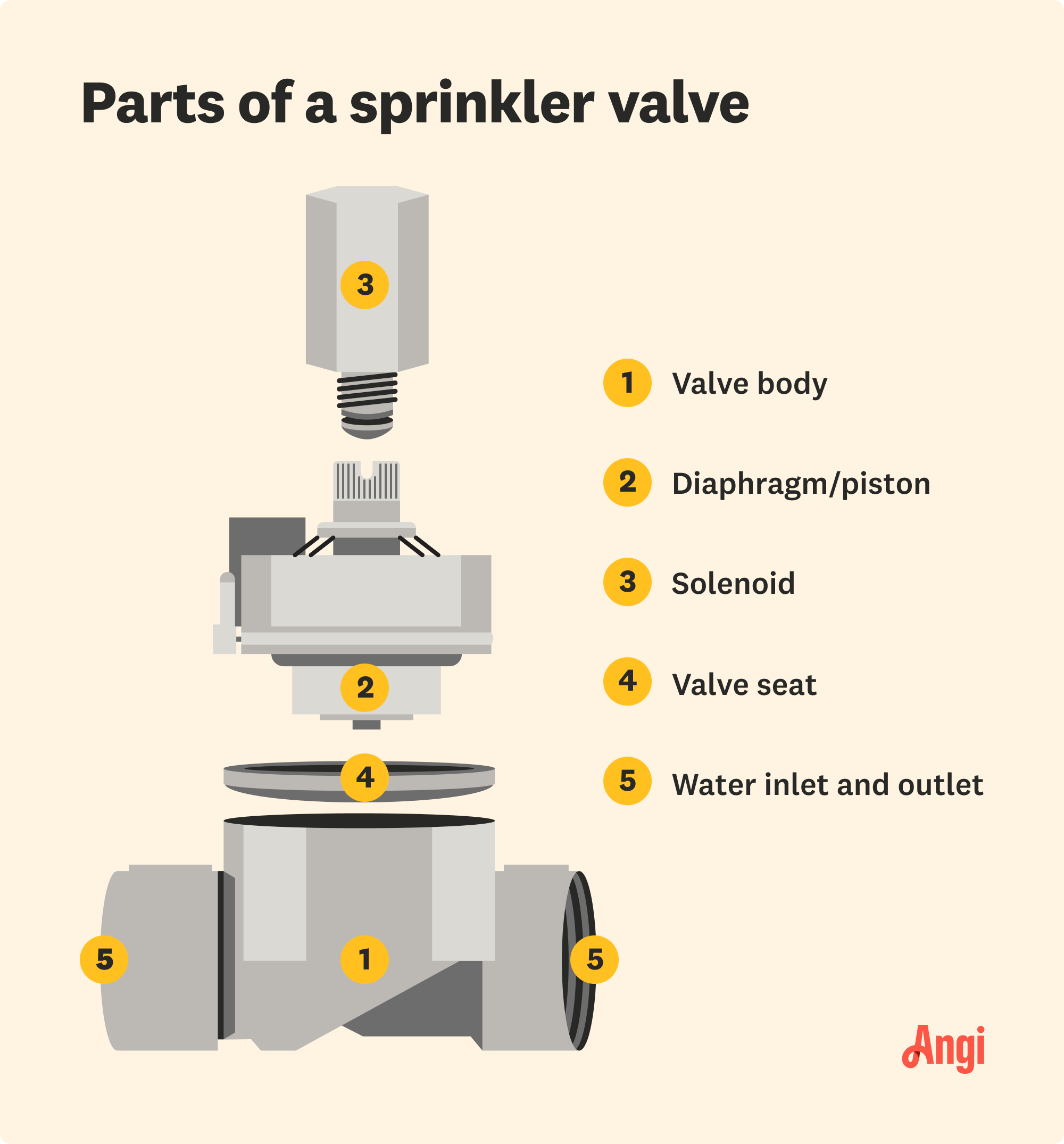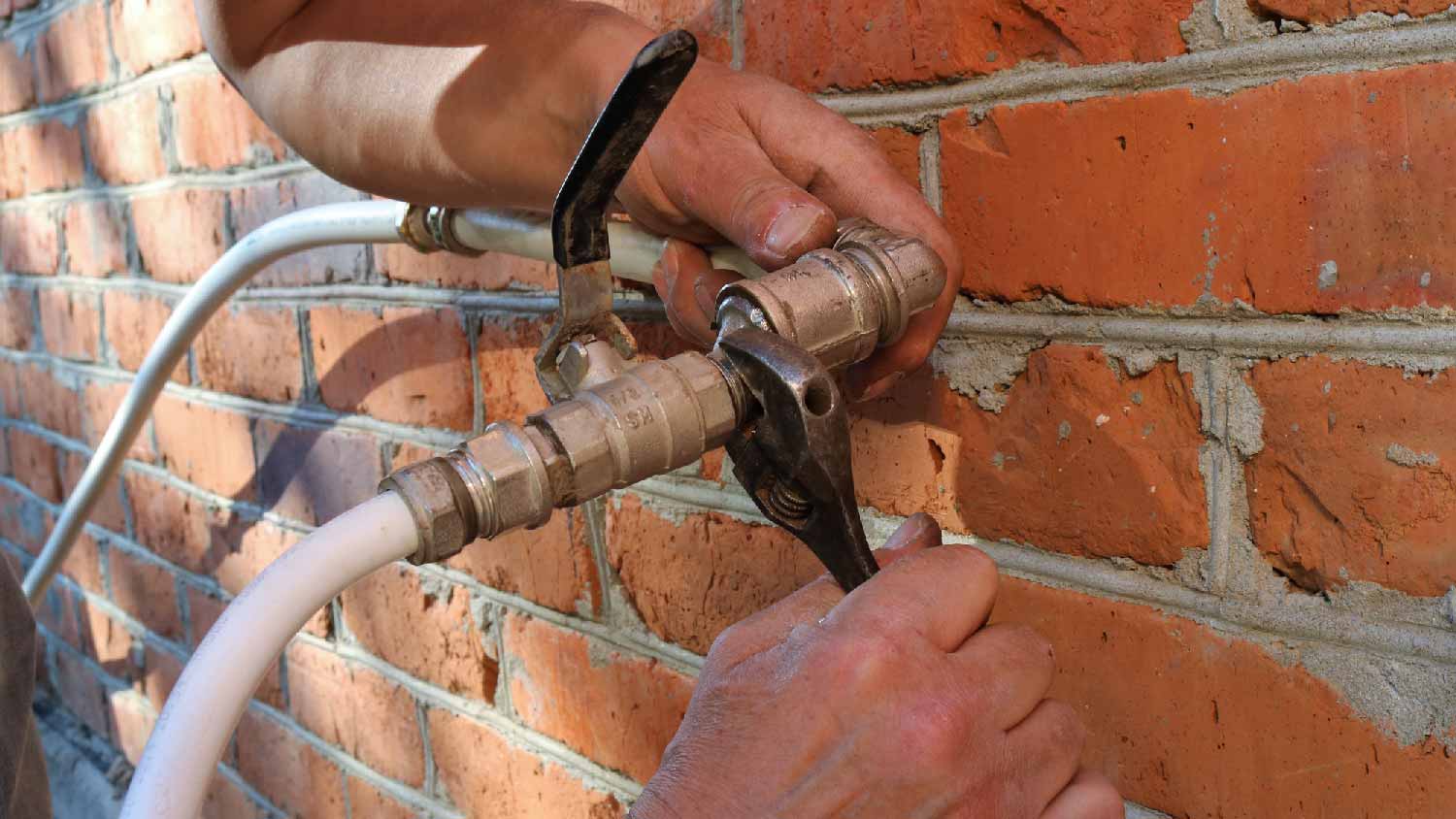
A French drain costs around $9,250 to install, but several factors will determine the final price you pay. Learn the cost to install French drains in this guide.
Get your sprinkler system back to full strength


If one sprinkler zone is not working, you might have an electrical issue with the entire system.
Other potential problems include damaged valves and leaky pipes.
Sprinkler system zones operate independently and may have different watering needs.
Contact a sprinkler repair professional to identify and fix the problem.
If your sprinkler zone isn’t working properly, you should hire a sprinkler repair technician to resolve the issue right away. A faulty controller, damaged or dirty zone valve, defective solenoid, or a leaky pipe could be the cause of the sprinkler zone issue. Let’s review some of the most common causes of this sprinkler system problem.
Sprinkler controllers (also known as irrigation controllers) are the command center of your sprinkler system, turning water on and off in each zone based on the settings you’ve created. The controller connects to each zone through a dedicated wire, so if there’s an issue with a particular zone’s wire, water might stop flowing to that area.
Unfortunately, wiring issues can be tricky to identify without professional help. However, there are a few simple solutions to try before you contact a pro. Sometimes, fixing a controller issue is as simple as making sure the device is on, replacing the batteries, or confirming that the watering settings are correct. If none of that works, call a sprinkler expert to take a look. They may need to repair the wiring or replace the controller entirely, which can cost up to $325.

Each sprinkler zone has a sprinkler valve that controls the distribution of water to the sprinkler heads in that zone. If one particular sprinkler zone won’t turn off, it might be because the valve is damaged or filled with debris, forcing it to stay open. Wet valve boxes are another potential sign of a faulty valve.
Replacing a broken sprinkler valve isn’t a beginner-friendly DIY project. You’ll need to shut off the water supply and disconnect the wiring before removing the old valve and swapping it out for an exact replacement. You might also have to cut and seal PVC pipes. For these reasons, we recommend bringing in a local sprinkler repair pro for this job.

The solenoid is an electrical device that connects to your sprinkler valve. It receives signals from the controller, which tell the solenoid when to open and close the valve (or, in other words, turn the water on and off in a particular zone).
Over time, a solenoid can become loose, get dirty, or break. If this happens, the damaged solenoid might release too much water into the sprinkler zone (if it keeps the valve open) or none at all (if it shuts the valve).
Depending on the exact problem, you might only need to clean the solenoid to get it working again. Otherwise, you might need a new one. If you’re comfortable getting your hands dirty, you can replace a damaged solenoid yourself, using our sprinkler maintenance tips as a starting point. However, this task involves shutting off the water supply, disconnecting the power, and taking apart your sprinkler valve, so if you aren’t comfortable with that, it’s better to hire a sprinkler expert.

If the sprinkler zone still turns on but is slower or weaker than the rest of your sprinkler system, you could have a leaky pipe in that zone. In situations like these, water will leak out of your underground pipes before it even gets to your sprinkler heads—which can result in reduced water pressure and water pooling in certain parts of your lawn.
Fixing a leaky pipe requires specialized skills, so it’s best left to the pros. For this job, a qualified plumber will start by finding the leak, digging into the ground to access the line, and repairing the sprinkler pipe. On average, plumbers charge $50 to $100 per hour for this type of work. Your total sprinkler pipe repair cost will depend on a few factors, including the pipe’s location and the extent of the damage.
When one (or more) of your sprinkler zones isn’t working, there are a few simple things you can try before calling a pro. For example, you can make sure the controller is on and programmed to the correct settings. If you’re up for more of a challenge, you could even try replacing a sprinkler valve or solenoid on your own.
However, if those DIY fixes don’t work, you’re unable to attempt them, or you don’t want to try DIYing it, bring in a pro. In many cases, repairing a sprinkler zone issue involves electrical and plumbing work. If you don’t know what you’re doing, there’s a risk of electrical shock, flooding, and other damage to your sprinkler system.
From average costs to expert advice, get all the answers you need to get your job done.

A French drain costs around $9,250 to install, but several factors will determine the final price you pay. Learn the cost to install French drains in this guide.

If your sprinkler system isn’t working, it may be time for a new pump. Find out sprinkler pump replacement costs with this guide.

Discover yard drainage cost estimates, including average prices, key cost factors, and tips to help you budget for your yard drainage project.

Rain sensors reduce water usage and nourish your lawn naturally. Intrigued? Dig into this guide to learn how to install a rain sensor for your sprinkler system.

Need to repair a sprinkler or install a new one? Learn the parts of the sprinkler system and how they all work together to water your lawn and garden.

From convenience to consistent watering, there are many benefits of sprinkler systems—but there are also drawbacks. Here’s what to consider before installation.